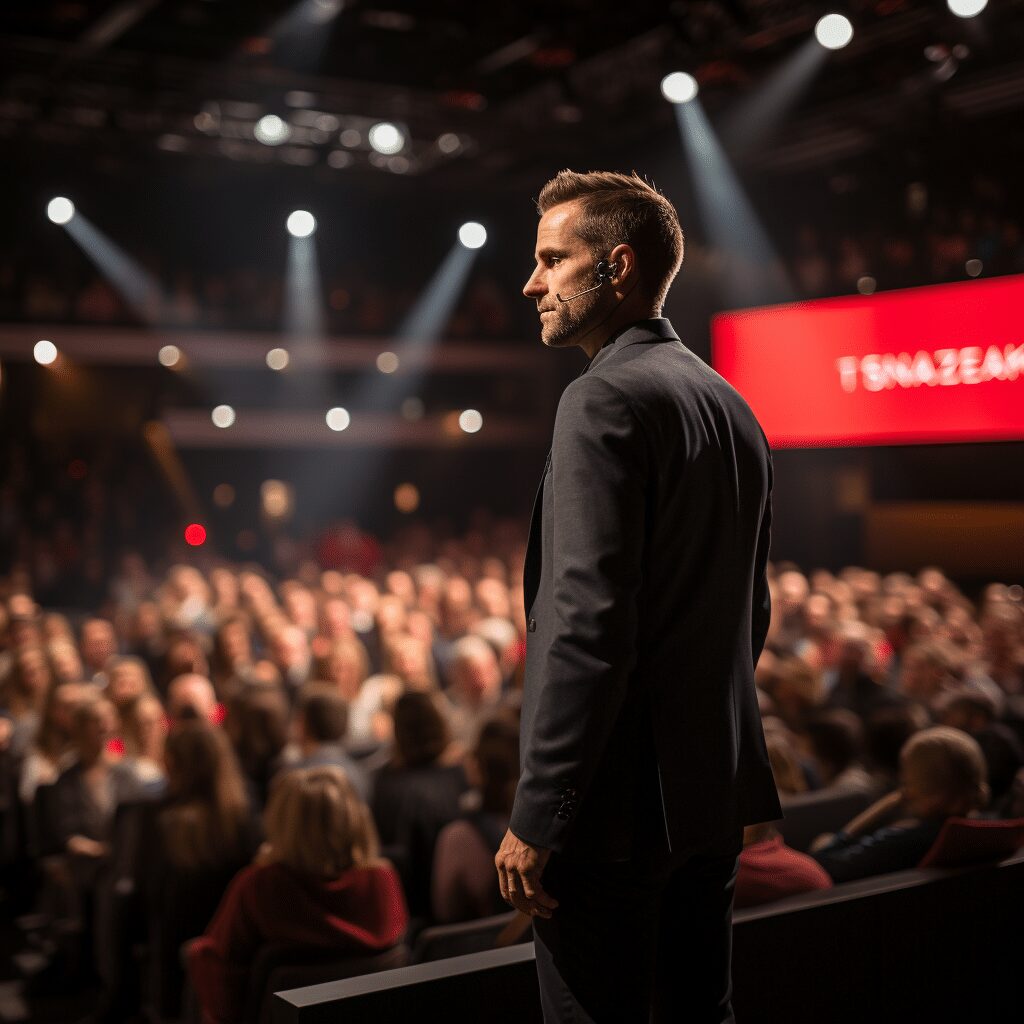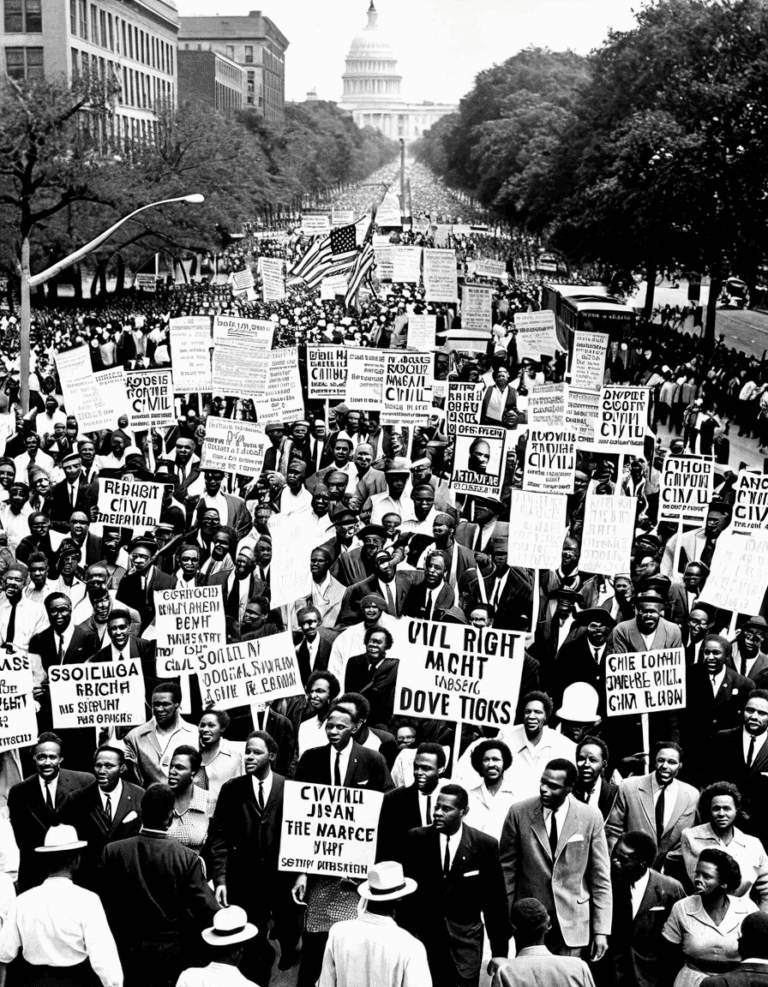Effective speaker event management is your secret weapon in orchestrating unforgettable experiences that captivate, engage, and inspire. Whether you’re planning a small professional gathering or a grand conference, understanding the essential elements that contribute to a stellar event is key to achieving success. By focusing on clear objectives, identifying your target audience, crafting compelling content, attending to logistical details, and developing a robust marketing strategy, you can lay a strong foundation for your event.
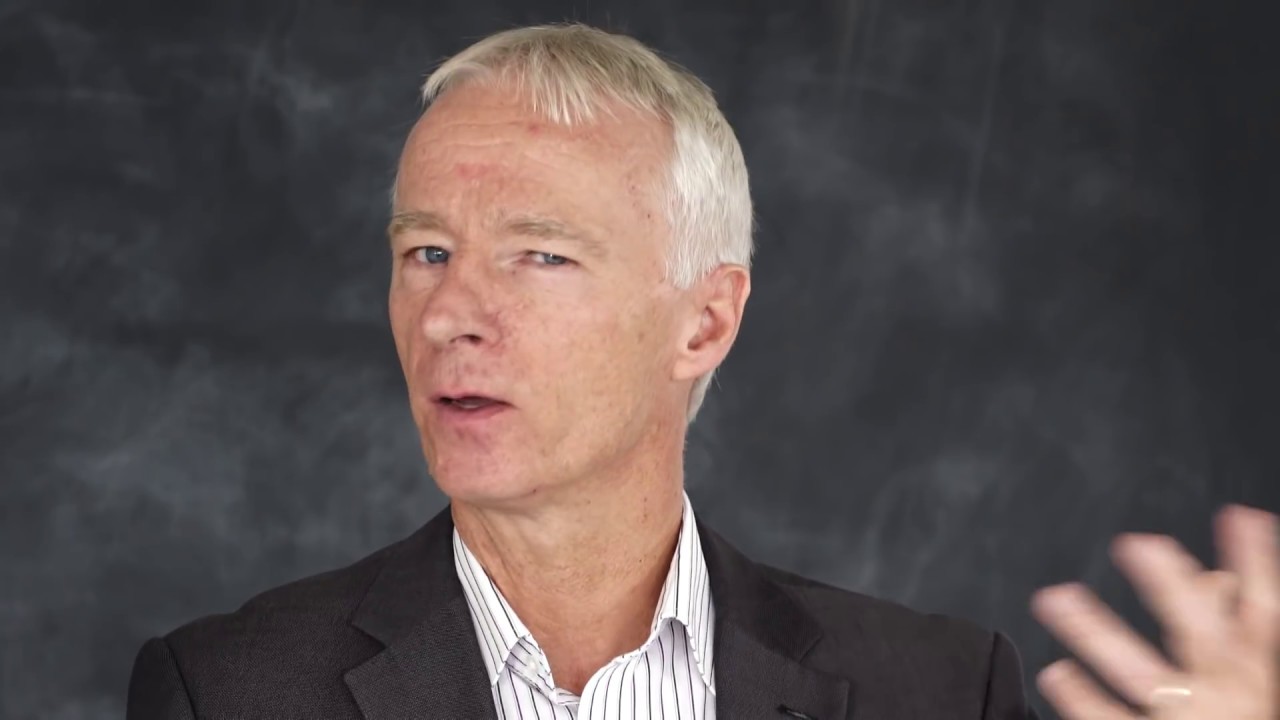
Creating the Foundation: Essential Elements of Speaker Event Management
Clear Objectives
First things first: define what success looks like for your event. Are you aiming for deep audience engagement, increased brand awareness, or warm leads? Establishing clear and measurable goals from the get-go ensures that your planning stays on track and serves your vision.
Target Audience Identification
Next, let’s hone in on your audience. Knowing who they are impacts every detail of your event planning—from speaker selection to marketing strategies. For instance, look at how TEDx events align themes that resonate with local communities. They understand their audience’s ethos and preferences, making planning an easy task.
Compelling Content
The heart of any event is its content. Engaging speakers who command attention and deliver value are essential. Think of influential figures like Simon Sinek, who built his career on talks that inspire attendees to think critically about their roles and impact. When you focus on quality, it leaves lasting impressions.
Logistics and Planning
Diving into details, logistics is a beast of its own. From venue selection to tech setups, every little bit matters. Tools like Eventbrite can streamline registration, while Zoom offers solutions for hybrid events, making them seamless and accessible. Every element should work together harmoniously, ensuring an experience that feels effortless for speakers and attendees alike.
Marketing Strategy
And let’s not forget marketing—without it, your event could remain a well-kept secret! Promoting the event effectively will ensure you hit your audience turnout goals. Social media campaigns, strategic email marketing, and partnerships with influencers amplify your reach. Take a page from the playbook of companies like Salesforce at their Dreamforce conference, who create buzz through savvy social media engagement.

Top 7 Secrets for Successful Speaker Event Management
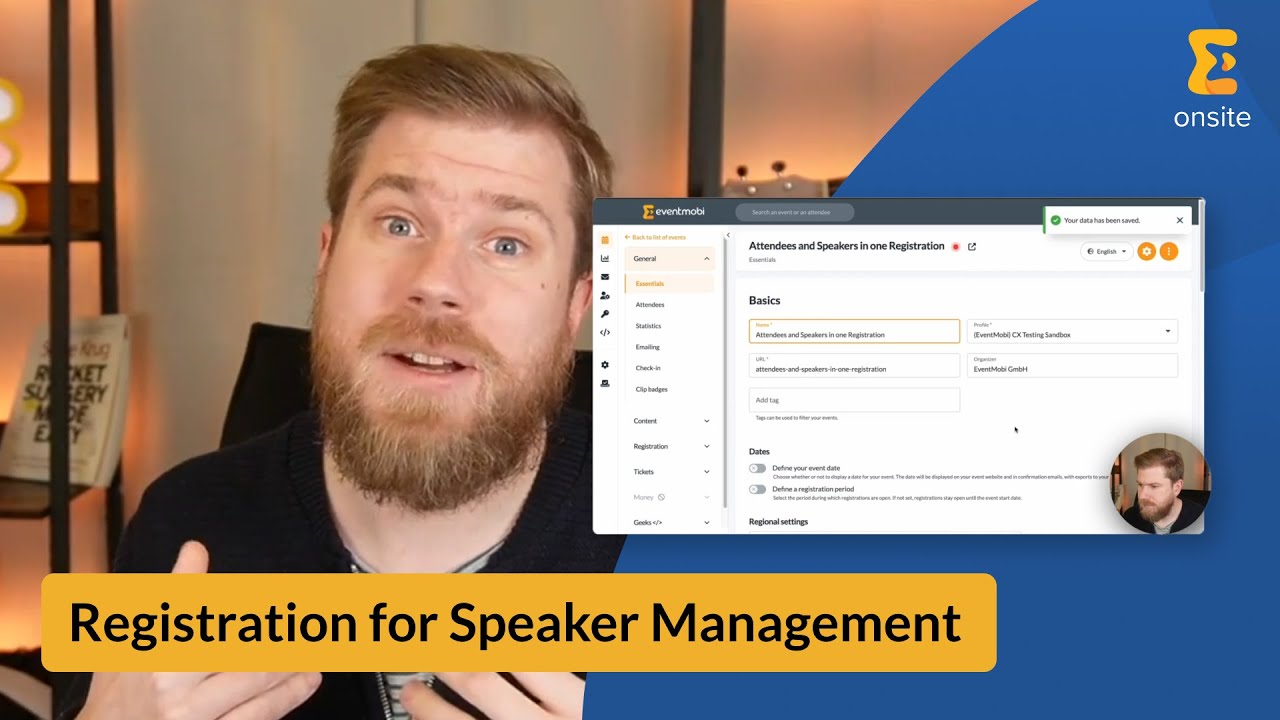
Insights into Audience Engagement in Speaker Event Management
Audience engagement is crucial in speaker event management. Interactive components can increase attendee retention by a staggering 40% compared to passive formats. For example, Buffer Festival transformed their static presentations into conversations by integrating live Q&A sessions, creating a shared experience that keeps participants invested.

The Role of Diverse Speaker Perspectives
Diverse voices are more than just a checkbox; they enrich the audience experience. When events like Women in Tech Global Impact Challenge include various perspectives, they don’t just attract a broader audience; they spark innovation and thought, promoting insightful discussions.
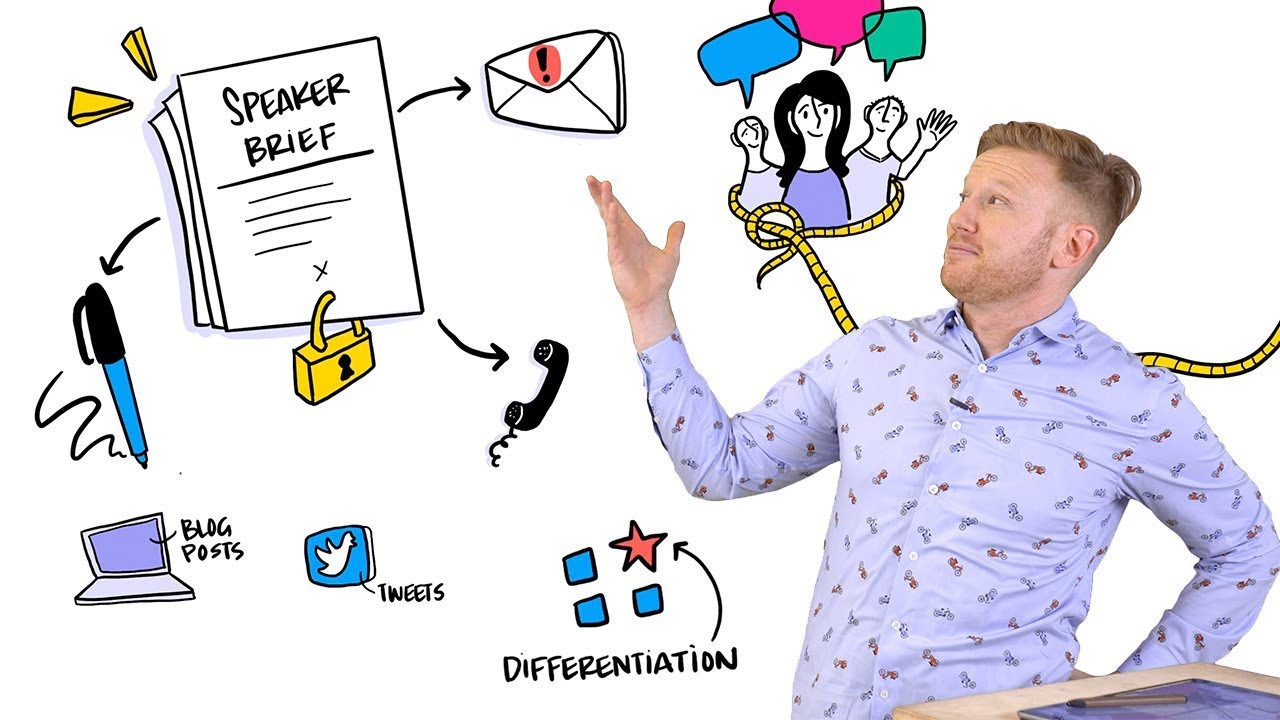
Crafting Memorable Experiences Beyond the Stage
Don’t limit memories to just speaker presentations. Incorporate themed décor, interactive activities, and unique culinary experiences to elevate the event atmosphere. The Taste of Chicago blends local cuisine with live speakers sharing culinary tales, creating an enriching sensory experience.
Future Trends in Speaker Event Management
As we venture into 2024, speaker event management trends are shifting gears. Embracing virtual and hybrid formats will continue to broaden audience reach and give flexibility. Furthermore, think about incorporating virtual reality (VR) to create immersive experiences. Recent tech expos have shown that VR allows attendees to explore products and ideas in captivating ways.
Final Thoughts on Building Unforgettable Speaker Events
Effective speaker event management requires careful planning, creativity, and a solid understanding of your audience. By honing in on the secrets to creating unforgettable events—like selecting the right venue, leveraging technology, and ensuring speaker diversity—you can craft experiences that enlighten and inspire patrons. Staying current with emerging trends and understanding what attendees value will help you pave the way for impactful future endeavors.
Don’t overlook the importance of passionate and skilled speakers, either! If you want to elevate your event to new heights, consider exploring options on how to hire a keynote speaker or delve into business keynote Events. Invest in public speaking training for your team to nurture and excel in this vital arena.
Remember, the more effort you pour into arranging and supporting your speakers, the higher your chances of success!
Speaker Event Management Secrets to Unforgettable Events
The Art of Speaker Event Management
Planning an extraordinary event isn’t just a stroll in the park; it’s more like participating in an amazing race season 35! From picking the perfect venue to curating the right mix of speakers, each detail plays a crucial role in crafting memorable experiences. The key to successful speaker event management lies in blending logistics with creativity. Highlighting speaker expertise and audience engagement will set your event apart. Including elements like interactive Q&A sessions or fun team challenges can make the experience more enjoyable.
When organizing events, it’s essential to keep an eye on trends. For example, having a high-energy speaker like Cyrus Howell can boost audience engagement and leave a lasting impression. Plus, leveraging technology, such as the Inmotion Rs presentation tools, can elevate the overall experience. These tech enhancements ensure that your speakers can deliver dynamic presentations that captivate audiences from start to finish.
Trivia and Tips for Speaker Event Management
Did you know that incorporating small yet effective elements can significantly impact your event? Great speaker event management often involves unexpected touches, like makeup stations featuring Laura Geller makeup for speakers, to help them look their best. Such details not only make a difference but can also be a talking point for attendees, creating an excitement that lasts beyond the day.
Lastly, consider the resources you allocate for each aspect of your event. Investing in high-quality materials and performances demonstrates commitment and professionalism. This dedication mirrors investors’ attention to stocks like Tcf stock, which requires due diligence and strategic planning to achieve returns. Keeping your event cohesive makes it stand out, encouraging attendees to remember it fondly—and wish to return!

What does speaker management do?
Speaker management oversees everything from the planning stage to the execution of an event. This includes coordinating with speakers, managing schedules, and ensuring that all technical needs are met for a smooth presentation.
What does a speaker do in an event?
A speaker at an event engages the audience by sharing expertise on a particular topic. Their role is key for sparking discussions and providing new insights that keep attendees interested and informed.
What does a speaker manager do?
A speaker manager handles all the logistics related to speakers, from booking and scheduling to supporting them during the event. They ensure that everything runs smoothly, which helps make the event a success.
How do you organize speakers for an event?
To organize speakers for an event, start by identifying the topics you want covered and finding experts in those fields. After reaching out, clarify details like budgets and travel arrangements, and keep communication lines open to support your speakers.
What are four duties of a speaker?
Four key duties of a speaker include engaging with the audience, delivering valuable content, answering questions, and networking with other speakers and attendees during the event.
Do you need a speaker management system?
While it’s not absolutely necessary to have a speaker management system, it definitely helps in optimizing and controlling audio output. These systems can make it easier to manage multiple speakers and adjust sound quality effectively.
How much do event speakers make?
The earnings for event speakers can vary widely based on expertise, experience, and event size, ranging anywhere from a few hundred to several thousand dollars per gig.
What is a good quote for a speaker?
A great quote for a speaker could be, “The art of communication is the language of leadership,” highlighting the importance of effective speaking.
How do you become an event speaker?
To become a speaker at an event, start by honing your expertise in a specific area, build a portfolio, and network with event organizers. Getting involved in smaller events can also help you gain experience and visibility.
Do you get paid to be a speaker?
Yes, many speakers get paid for their appearances. Compensation can depend on factors like the speaker’s experience and the budget of the event.
What is the most important role responsibility a speaker must have?
A crucial responsibility of a speaker is to engage the audience. They should connect with listeners, deliver their message clearly, and invite participation to enhance the event’s impact.
What is the role of the speaker?
The role of a speaker is to share knowledge and insights on a specific topic, helping to educate or inspire the audience. Their ability to communicate effectively greatly influences the event’s success.
What do event speakers do?
Event speakers typically prepare and deliver presentations, engage in Q&A sessions, and network with attendees. They play a vital role in creating an interactive and enriching atmosphere.
How to plan a speaking event?
Planning a speaking event involves setting objectives, selecting topics and speakers, logistics like venue and technical needs, and promoting the event to attract attendees. It’s all about good organization and communication.
What is the etiquette for speakers?
Speakers should follow etiquette by being punctual, respecting the audience’s time, engaging appropriately, and being open to questions. A professional demeanor helps set the tone for the event.
What are the three major role or purpose of a speaker?
The three main purposes of a speaker are to inform, inspire, and engage the audience. Effective speakers strive to deliver value through their presentations.
What is the job of a speaker coordinator?
A speaker coordinator is responsible for managing the schedule and needs of the speakers at the event. They connect with speakers to ensure their requirements are met and provide assistance throughout the event.
What is the main function of the speaker?
The main function of the speaker is to convey information or insights on a specific topic. They aim to engage and connect with the audience effectively to leave a lasting impression.
How to connect speaker management system?
To connect a speaker management system, you’ll typically follow the manufacturer’s guidelines. This usually involves linking audio sources, adjusting settings, and ensuring all speakers are properly configured for the best sound quality.











